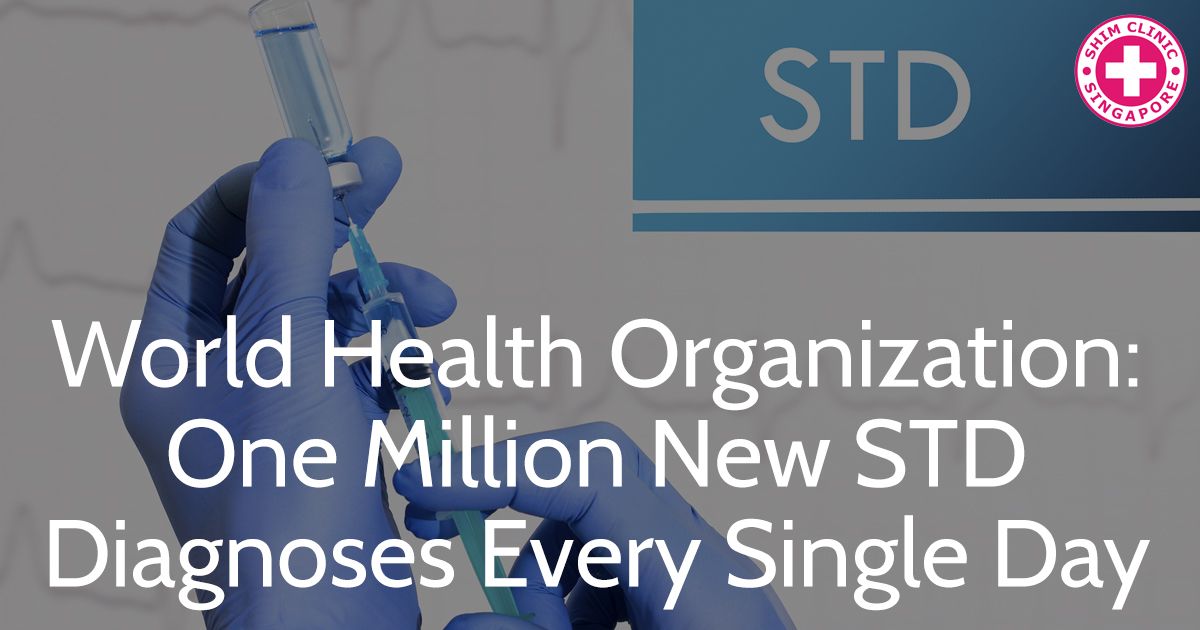Every single day, more than one million sexually transmitted infections (STIs) are contracted across the world, a report by the World Health Organization (WHO) suggests.
The report was released in early June 2019, suggesting that four STDs top the list in terms of most common infection – chlamydia, gonorrhoea, trichomoniasis and syphilis.
People Taking Risks with Their Health
WHO findings show that one in every 25 people globally has at least one STD. These numbers suggest that regardless of high awareness and effective preventative measures, people are careless with their health.
Dr. Melanie Taylor, author of the WHO report, said in a CNN interview that people are gambling with their reproductive health. The WHO report also suggests that one and the same person could be infected with multiple STIs or they could experience re-infection after a previous condition is treated.
STIs are primarily passed through unprotected sexual contact, although they could also be passed from mother to unborn child. Because many of them go asymptomatic for prolonged periods of time, problems could arise because of a delay in treatment. Common STDs could lead to serious complications like reproductive problems and significantly reduced fertility.
Regular STD testing is the only reliable way to find out whether an infection has occurred. This is why sexually active individuals are advised to get checked at least once per year or more frequently if they participate in risky behaviours (unprotected sex, casual encounters, being a sex worker, etc.).
Are STDs Becoming More Difficult to Treat?
The World Health Organization report is also pointing towards current difficulties in the treatment of the four most common STDs.
Some of the new infection cases are of particularly high concern. In 2018, the world saw multiple infections with the so-called “super-gonorrhoea.” Infections occurred primarily in Australia and the United Kingdom and they were incredibly difficult to treat.
The strain of bacteria causing the infection is resistant to many of the typical antibiotics used for the treatment of gonorrhoea. Researchers are concerned that the number of such bacterial strains will continue increasing as infections spread.
WHO data about STI infections on an annual basis has remained nearly unchanged since 2012. Regardless of medical advances and more knowledge about such topics, the world remains careless and as bacteria evolve, STIs will become more difficult to treat.
Because most of the STI infections remain hidden, they pass easily from one person to another in the absence of testing. Talking about STDs is still shameful and a taboo in many parts of the world, Dr. Taylor said. This lack of openness is further contributing to the scale of the problem and the inability of the medical community to eradicate STIs.
Hopefully, medicinal advances like the development of STD vaccines will contribute to slower proliferation of the infections and their eventual disappearance.
STI Figures in Singapore Just as Troublesome as Global Data
STI infection rates in Singapore are in line with the global findings.
The number of young people who have contracted a sexually transmitted disease in Singapore is growing, the Department of Sexually Transmitted Infections Control reported.
As per the report, the number of young people who have contracted an STI has increased steadily since 2007.
Data for 2015 (the latest available findings) shows that the number of new STD diagnoses among people aged 10 to 19 was 421. The number is up from 391 new diagnoses in 2014. Obviously, the numbers aren’t as recent as the WHO report but they still point towards a troublesome trend, especially when the age of the infected individuals is taken in consideration.
STI prevention is possible and highly effective. Abstinence and the use of contraceptives like condoms can prevent the spread of sexually transmitted diseases. A STD clinic can provide information about STDs, prevention and early diagnosis.
Shim Clinic also offers STD testing that is quick, efficient and safe. Testing is possible for most common types of sexually transmitted infections, even in the case of asymptomatic individuals. If you are sexually active, you should do the responsible thing and get tested at least once per year. Remember that most STIs are completely treatable and the earlier you get diagnosed, the less likely you are to experience complications as a result of a curable disease.
The Shim Clinic opening hours are from 9am to 3pm and from 7pm to 11pm, Monday to Friday. We also work with patients from 7pm to 11pm on Saturday and Sunday. Come by or call us at (+65) 6446-7446 to have your most important questions about STDs answered.


Pingback: Number of Syphilis Diagnoses in Thailand Goes Up: What Are the Dangers?